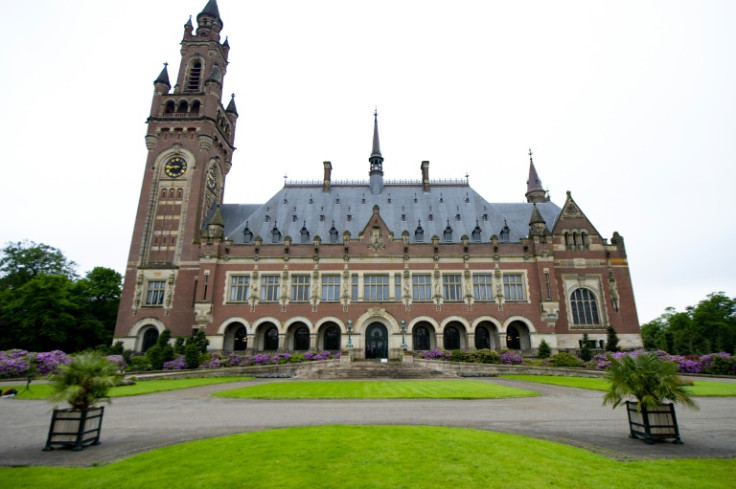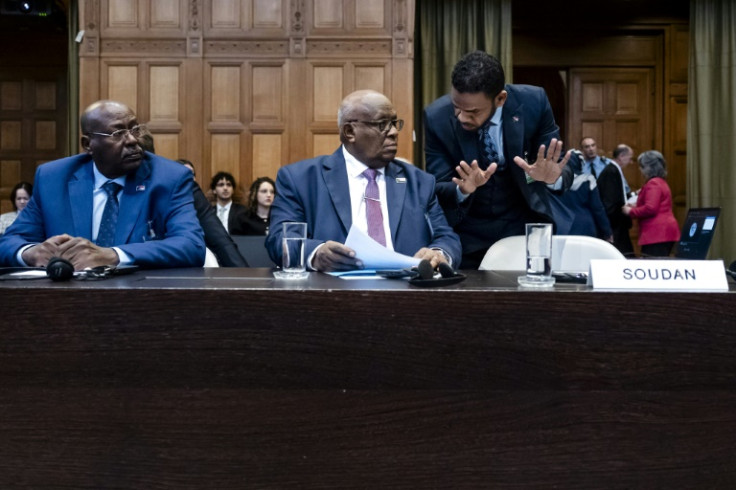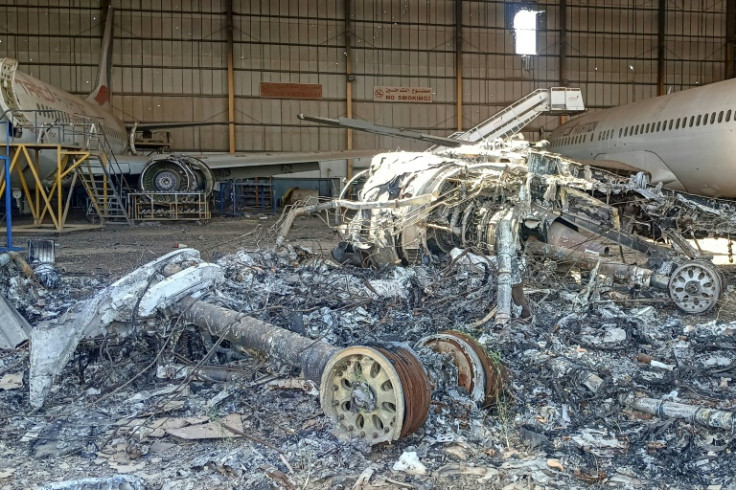Sudan Tells Top Court UAE 'Driving Force' Behind 'Genocide'

Sudan told the International Court of Justice Thursday that the United Arab Emirates was the "driving force" behind what it called a genocide in Darfur, a charge the UAE said "couldn't be further from the truth".
Khartoum has dragged the UAE before the ICJ, accusing it of complicity in genocide against the Masalit community by backing the paramilitary Rapid Support Forces (RSF) battling the Sudanese army since 2023.
The UAE denies supporting the rebels and has dismissed Sudan's case as "political theatre" distracting from efforts to end the war that has killed tens of thousands.
As robed lawyers wrestled over legal interpretations of jurisdiction in the panelled hall of the Peace Palace, the human cost of the conflict has continued to mount.
The army and local activists said a paramilitary strike on the El-Fasher city in Darfur on Wednesday killed at least 12 people and wounded 17.
Opening the case at the ICJ, Muawia Osman, Sudan's acting justice minister, told the court that the "ongoing genocide would not be possible without the complicity of the UAE, including the shipment of arms to the RSF.
"The direct logistical and other support that the UAE has provided and continues to provide to the RSF has been and continues to be the primary driving force behind the genocide now taking place, including killing, rape, forced displacement and looting," said Osman.
Sudan wants ICJ judges to force the UAE to stop its alleged support for the RSF and make "full reparations", including compensation to victims of the war.
Responding for the UAE, Reem Ketait, a top foreign ministry official, told the court: "The idea that the UAE is somehow the driver of this reprehensible conflict in Sudan could not be further from the truth.
"This case is the most recent iteration of the applicant's misuse of our international institutions as a stage from which to attack the UAE," added Ketait.
Sudan's allegations were "at best misleading and at worst pure fabrications", she said.
The case comes a day after the United States and Saudi Arabia called on the Sudanese army and paramilitary forces to resume peace talks in the country's conflict.
Legal experts say Sudan's case may founder on jurisdictional issues.
When the UAE signed up to the Genocide Convention, it entered a "reservation" to a key clause enabling countries to drag each other before the ICJ over disputes.
Sudan's claims raise "important questions", Michael Becker, international law expert from Trinity College Dublin, wrote in a recent piece for the Opinio Juris specialist website.
"Because the UAE made a reservation to Article IX when it acceded to the Genocide Convention in 2005, the ICJ can be expected to conclude that it lacks jurisdiction over the dispute," wrote Becker.
"There is clearly no basis for the court's jurisdiction in this case," the UAE's Ketait told the judges.
The UAE called for the case to be thrown out and removed from the court's list.
Sudan argued in its application that the UAE's reservation was "incompatible" with the purpose of the Genocide Convention, which emphasises global collective responsibility to prevent the world's worst crimes.
The rulings of the ICJ, which hears disputes between states, are final and binding but the court has no means to ensure compliance.
Judges ordered Russia to halt its invasion of Ukraine to no avail, for example.
"We have put before the court a very, very clear case," Sudanese minister Osman told reporters outside the Peace Palace in The Hague, where the ICJ sits.
"In our belief, if there were no support from the UAE, all these violations (of the Genocide Convention) would not be able to happen," Osman said.


© Copyright AFP 2024. All rights reserved.




















